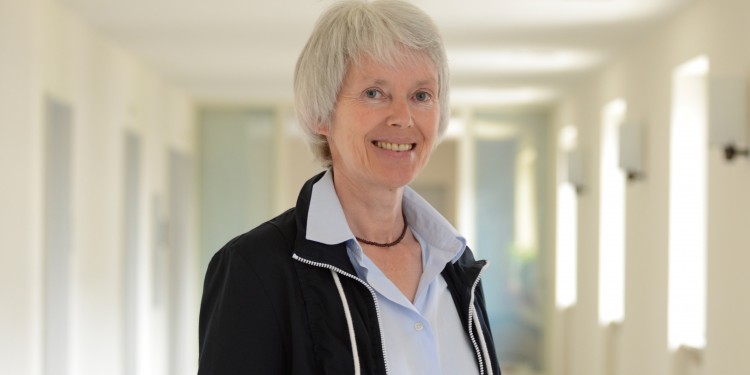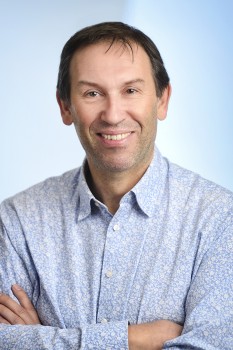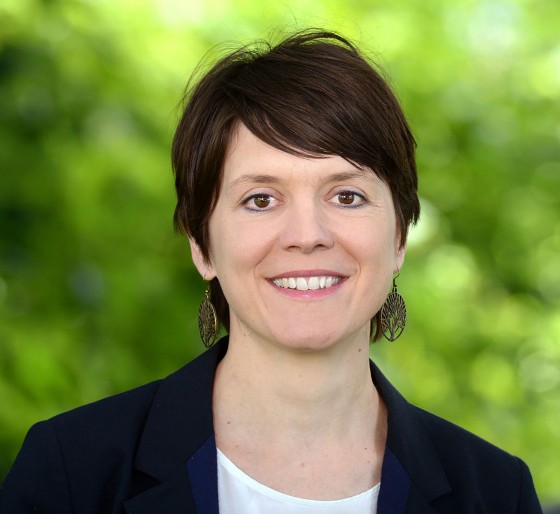
Promoting junior researchers: an international task
“Excellent infrastructure is the basis”
One of a university’s basic tasks is to secure a future for junior academics, and this has a twofold aim. Firstly, there is the basic and the continuing education designed to enable young academics to take on responsible work in business and society. Providing a solid education for junior academics is achieved by offering phased, structured courses (Bachelor, Master) as well as by having attractive PhD programmes.
The other thing which is important is to promote specifically those junior researchers who are able to make innovative contributions by means of outstanding academic work in research and teaching in an international environment. It is for this reason that the University of Basel attaches the highest importance to quality in teaching (university didactics and teaching prizes such as the Teaching Excellence Awards) and in research – with the latter being facilitated by means of excellent research infrastructure as the basis for a strong, internationally oriented research university with a high proportion of acquired funding for this research.
The most important expertise as regards research work is acquired by junior academics in research groups. Other elements in support of a career are mobility programmes for young postdocs who wish to enhance their profile at top universities abroad and expand their networks, career-relevant university posts such as associate professorships – both with and without a tenure track option – and specific national and international programmes to promote highly qualified researchers who want to demonstrate their academic independence with a view to a permanent professorship.
Support is also provided for junior researchers on their way to academic independence in the form of supplementary funding from research funds, financial support for participation in international congresses, measures designed to ease the burden on parents, and special mentoring programmes for women. After all, increasing the share of women in leading positions is still a major issue.
Agnes Hess is Head of Career Advancement at the University of Basel.
“A Code of Practice provides transparency”

Structural embedding promotes academic socialisation, which always takes place within the particular subject being studied. The curricula provide the legal framework for the number of hours involved and underline the project character by means of milestones and annual reports. The doctoral programmes independently define the content and the teaching programme. The supervision of researchers by professors remains an essential element. A Code of Practice provides transparency and clarifies expectations. The supervision is complemented by training offers on the development of interdisciplinary skills.
Financial security makes it three or four times more likely that a PhD is completed. One of the aims for the next few years is, therefore, that at least 50 percent of all those actively engaged in completing a PhD should have employment at the University of Vienna so that they can concentrate fully on acquiring their doctorate. To this end, the acquisition of third-party funding to provide financial support for doctoral students will be supplemented by university funding, thus effectively doubling the funds available for the programmes. This means that in future around 60 million euros will be made available annually for doctoral students’ salaries.
As a target group, postdocs are harder to come to grips with. Few structures, unclear tasks and, above all, the unclear aim at the end of the postdoc period – all these present challenges in developing any measures. We are currently in the process of developing a strategy and hope to be able to provide more information on the subject at a later stage.
The University of Vienna cannot offer academic career prospects to anything like all junior researchers. What it can offer, though, is honesty in our dealings with one another – so that these researchers can look back on an inspiring, if demanding, phase of their life full of good experiences.
Dr. Lucas Zinner is Head of Research Services and Career Development at the University of Vienna
“Promoting interdisciplinary skills”

The GRC strengthens junior researchers’ interdisciplinary competences and initiative by means of course programmes and awarding funds. We are continually adapting the courses we offer: since 2018 with “improvisation” – a constructive way of handling failure in academic work; “design thinking” – the development of new ideas; and “storytelling” and “storyboarding” – in order to professionalise science communication.
The GRC advocates continuous, transparent quality assurance in doctoral degrees. By using ‘best practice’ guidelines for the path to a doctorate, our aim is to help shape the culture change in the supervision of doctoral students. Our annual event in November 2019 will therefore be dedicated to the issues of Supervision and Mentoring.
Furthermore, we offer junior researchers carefully curated information and get them networked with one another. We also support them in interacting with the public, for example in the form of the exhibition entitled “100 Ways of Thinking. The University of Zurich in the Kunsthalle”. Linking up the exhibition with the Science Festival in a prestigious institution of contemporary art in Zurich enabled us in 2018 to have over 100 days of contact and discussions with members of the public. The exhibition, which was organised by the GRC, attracted more than 14,000 visitors.
We would be delighted to exchange ideas and views with colleagues from other universities. We can be found at our website – www.grc.uzh.ch – or on social media (Twitter: @GraduateCampus, Facebook: @grc.uzh).
Dr. Claudine Leysinger is the General Manager of the Graduate Campus at the University of Zurich
This article is taken from the Münster University newspaper “wissen|leben”, No. 4, 5 June 2019
